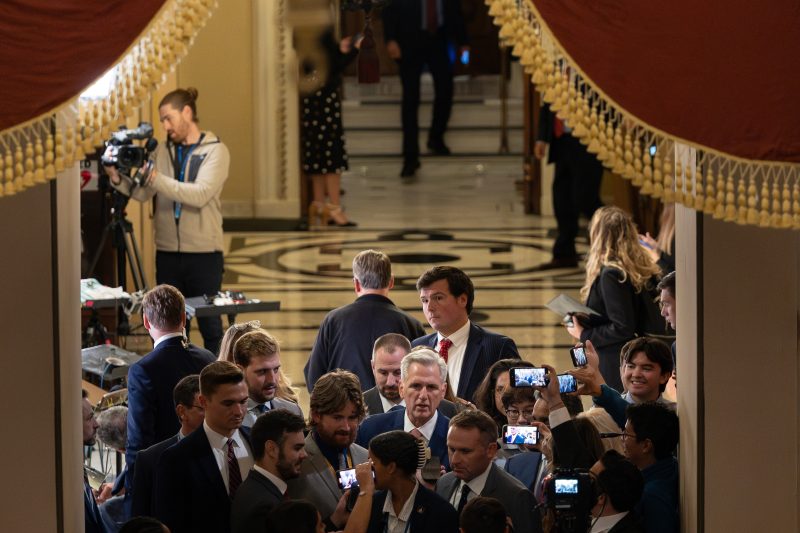
House passes three more long-term spending bills, but agriculture bill fails
The Republican-controlled House passed three long-term appropriations bills late Thursday and sent them to the Senate, where they face opposition from Democrats that could force the chambers to negotiate.
None of the bills has an immediate impact on a looming government shutdown that will begin Sunday at 12:01 a.m. if the two chambers do not agree to a short-term spending deal.
The House-approved measures would fund the departments of Defense, State and Homeland Security for fiscal year 2024.
Meanwhile, the House failed to pass a piece of legislation that would have funded the Department of Agriculture for a full year. Democrats were joined by more than 25 Republicans in voting against it — some of whom have raised concerns over abortion-related policies in the bill.
To avoid a government shutdown, the Senate and the House have to either pass the same version of 12 appropriations bills before Sunday — time has run out on that course of action — or agree on a deal to fund the government in the short term while they work on the longer-term funding measures.
With Thursday night’s votes, the House has passed a total of four of the 12 appropriations bills. The Senate has passed none.
While the Senate is advancing a short-term funding measure to buy Congress more time to work on full-term appropriations bills, House Speaker Kevin McCarthy (R-Calif.) is not likely to bring that proposal to the floor unless senators agree to add border security provisions to it.
McCarthy’s calculation is that, if border funding is added to the continuing resolution, he can rally enough Republican support in his conference to avert a government shutdown over the weekend.
By the end of the day, however, there appeared to be no finalized deal on border funding in the Senate short-term bill.
McCarthy, meanwhile, said he planned on bringing the House’s own continuing resolution to the floor on Friday. It is expected to contain less funding than the Senate version and more conservative demands.
The House stopgap measure would include funding for border security. The contours largely follow a deal struck last week by the pragmatic Main Street Caucus and the hard-right Freedom Caucus. But exactly how long the continuing resolution, or CR, would last remained up in the air.
Still, the three appropriations bills passed by the House late Thursday mark somewhat of a victory for McCarthy, who has struggled over the last two weeks to unite his conference behind a short-term plan that would both appease his hard-right flank and ensure he keeps his leadership position.
To get the appropriations bills to the finish line, McCarthy made a number of concessions to hard-right members of the House GOP conference. Rep. Marjorie Taylor Greene (R-Ga.), for example, voted for the Defense appropriations bill only after the House Rules Committee stripped $300 million earmarked for Ukraine from the measure. Greene has repeatedly said that her support is contingent on no funding for Ukraine.
Even so, roughly 10 Republicans have said they will never vote for a continuing resolution in protest of the House’s delay in considering full-year funding bills.
“Members say they only want to vote for individual bills, but they hold me up all summer and won’t let me bring individual bills up,” McCarthy said Thursday. “Then they say they won’t vote for a stopgap measure that keeps government open. So I don’t know where do you go in that scenario?”
McCarthy and his leadership team hope that moving forward on fiscal 2024 bills will eventually shake enough support loose among hard-liners for a stopgap deal with the Senate. That theory will be tested Friday, when the speaker plans to put the House’s continuing resolution on the floor.
